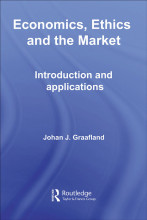Summary: A Theory Of Justice | 9780674000780 | John Rawls
- This + 400k other summaries
- A unique study and practice tool
- Never study anything twice again
- Get the grades you hope for
- 100% sure, 100% understanding
Read the summary and the most important questions on a theory of justice | 9780674000780 | John Rawls
-
6 Duty and Obligation
-
6.1 the argument for the principles of natural justice
-
What are the two parts of the natural duty to support and to further just institutions, from the standpoint of the theory of justice?
- we are to comply with and to do our share in just institutions when they exist and apply to us
- we are to assist in the establishment of just arrangements when they do exist, at least when this can be done with little cost to ourselves -
What is the best way to resolve the conflict that arises when we have the choice of the utility principle as the standard for individuals?
To choose a principle that matches in some suitable way to the two principles of justice, when an individual holds an institutional position -
Why is it a very great social asset as citizens have an effective sense of justice in a well-ordered society?
It tends to stabilise just social arrangements -
What is the assurance problem?
To maintain stability by removing temptations of the first kind. Which is done by public institutions and therefore also makes the temptations of the second kind go away. At least in a stable society -
What is a sufficient ground for adopting the duty of mutual aid?
The pervasive effect it has on the quality of everyday life -
6.2 the arguments for the principle of fairness
This is a preview. There are 2 more flashcards available for chapter 6.2
Show more cards here -
From what arise obligations, according to Rawls?
The principle of fairness -
What is the principle of fairness, according to Rawls?
A person is under an obligation to do his part as specified by the rules of an institution whenever he has voluntarily accepted the benefits of the scheme, or has taken advantage of the opportunities it offers to advance his interests, provided that this institution is fair -
What are the two parts of the principle of fairness?
- How we acquire obligations, by doing various things voluntarily
- Laying down the condition that the institution in question be just as it is reasonable to expect under the circumstances -
For what can the principle of fairness be useful to have?
It should enable us to give a more discriminating account of duty and obligation -
What are aspects of the rule of promising, which specifies the appropriate circumstances and escaping conditions in order for a practice to be just?
- Being fullyconscious
- Be in arational frame of mind
- Know the meaning of theoperative words and their use in making promises
- Words must be spoken freely or voluntarily
- Have a reasonably fair bargaining position
- Higher grades + faster learning
- Never study anything twice
- 100% sure, 100% understanding

































